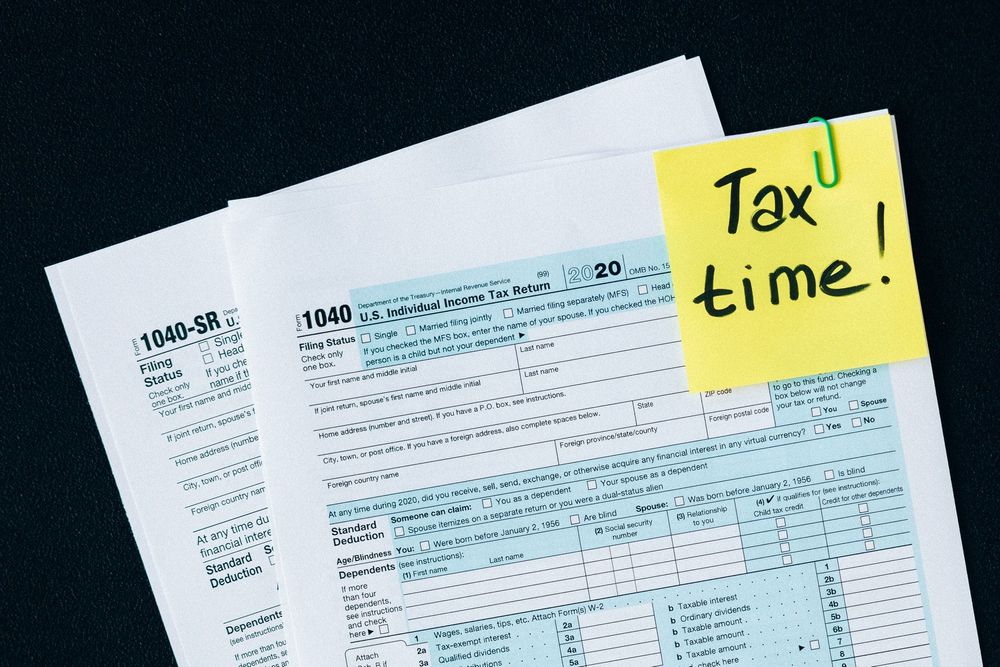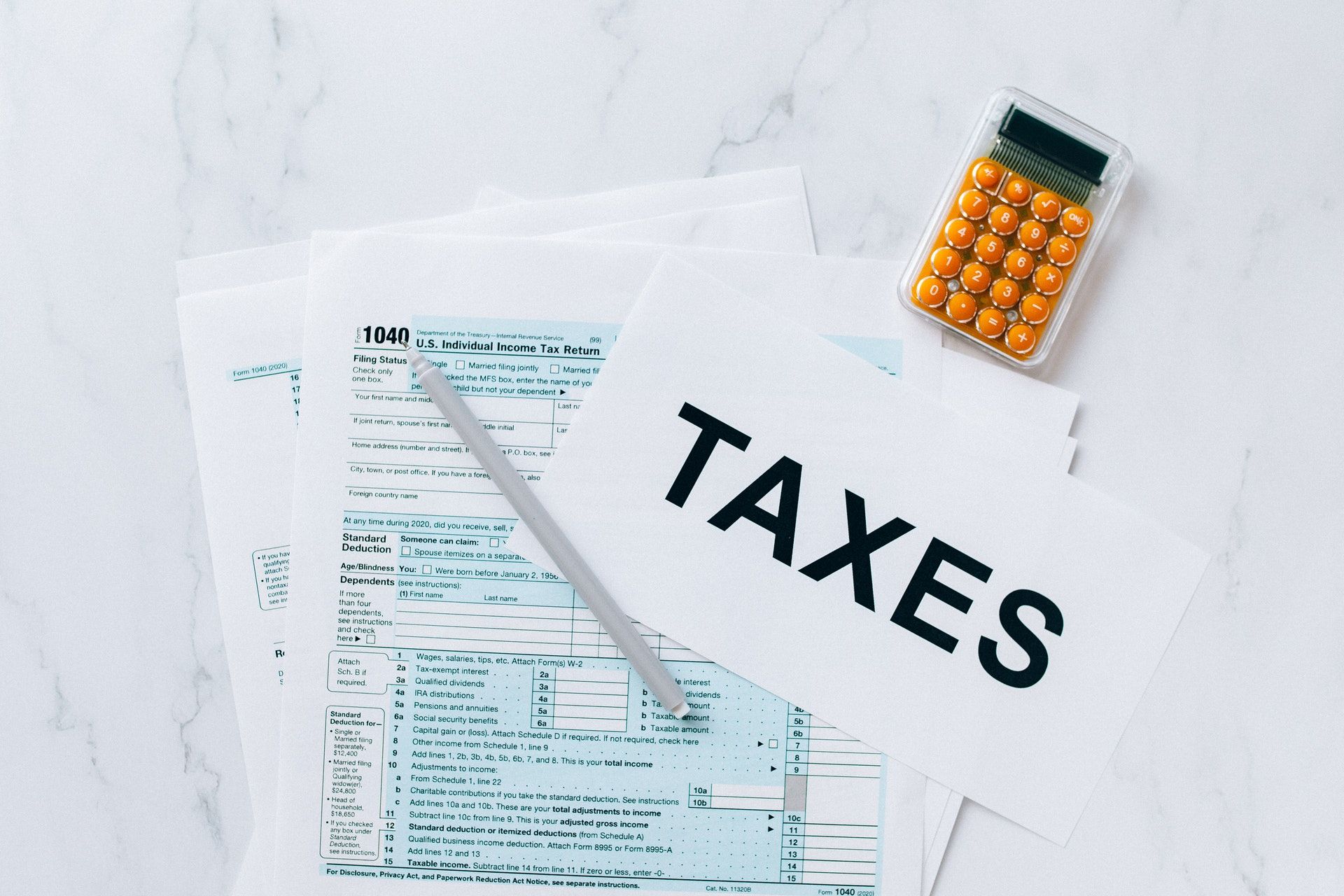Each American will pay an average of $525,037 in lifetime taxes, according to an analysis of BLS (Bureau of Labor Statistics) data by Self Financial. This translates to around 34.3% of the lifetime earnings of an average American.
At least 65% of the $525,037 Americans will pay in lifetime taxes is from earnings, meaning the more money you make, the more tax you pay. That said, you can still lower your taxes even as your earnings increase by using some innovative but legal tricks that will not get you into trouble with the IRS.
Here is an overview of some of the strategies you can use to reduce your tax burden.
1. Reduce Tax Deduction by Saving More for Retirement
A simple but highly effective way of reducing your taxable income is by increasing your retirement savings contributions.
Employer-sponsored retirement savings plans like 401(k) and 403(b) are pre-tax contributions, so simply increasing the amount you contribute to them will significantly reduce your taxable income.
The total amount allowed in 2022 is $22,500, and if you are over 50 years, you can make an additional catch-up contribution of up to $6,500, which further reduces your tax liability.
2. Utilize Tax Credits
It is essential to make sure you understand all the tax credits you are entitled to and claim them as they will reduce taxable income.
Tax credits will reduce the amount of tax you owe, unlike tax deductions that reduce your taxable income. For example, if you get $5,000 in tax credits, your tax burden reduces by $5,000.
A tax deduction of the same amount would only mean that your taxable income will reduce by $5,000, and hence your tax burden will be reduced by a percentage of this, depending on your tax bracket.
3. Increase Your Health Savings Account (HSA) Contributions

Besides giving you some assurance that you will have money to cater to your health needs in the future, a health savings account can help reduce your tax liability.
Contributions to a health savings account are pre-tax, and IRS allows contributors to make the payments until the last tax filing day and make the deduction from the current tax year.
The IRS will allow a maximum contribution of $3,850 for individuals and up to $7,750 for families for the 2023 tax year. Although it might not sound like much, combining this with other strategies will ultimately lead to a lower income tax obligation.
4. Setup Kids College Fund
Saving towards your kids' college using popular plans like the 529 plan can help reduce your tax liability. The 529 plan is tax-advantaged to help encourage parents and guardians to save for future education costs.
Contributions to the 529 plan are typically not tax-deductible at the federal level. Still, it is essential to check the rules at your specific state because all or part of it might be tax-deductible. Additionally, the contribution may attract a gift tax if it exceeds a certain amount in some states.
Therefore, if you plan to use the 529 plan to reduce your tax deductions, make sure you understand the plan's federal and state rules.
5. Make More Charitable Contributions
Charitable contributions can give you considerable savings in your tax bill. Donating money and other things like household items is one of those tax reduction strategies that will save you cash and leave you feeling satisfied for helping out someone in need or a charitable cause.
However, for your contributions and volunteer work to lower your tax bill, you have to make sure the organization you are dealing with is a qualified nonprofit organization.
Additionally, only itemized deductions can reduce your tax bill, and any expenses you incur when volunteering and doing charity work is often still tax-deductible. For example, any travel expenses you incur when doing charitable work will add to your tax liability.
6. Increase Business Expenses
Increasing your business expenses does not sound like a good idea as it means reduced profits. However, it only means you need to report more business expenses as you file your tax and not directly increase the expenditure.
As a business owner, the higher your expenses are, the lower your net profit and hence the lower your tax.
This strategy can work best for self-employed individuals that often overlook many business-related expenses. These expenses include things like office rent, inventory and business vehicle maintenance costs.
Moreover, you should also claim business tax deductions for the tax year, as this will reduce both your self-employment and income tax.
7. Use the Flexible Spending Plans

Some employers have flexible spending accounts that can help reduce taxable income to lower an employee's overall tax bill.
The flexible spending account will allow the employees to set aside a small portion of their earnings to a separate employer-controlled account to cater or things like medical expenses. In 2023, the IRS will allow employees to contribute up to $3,200 to a flexible spending account plan.
It is important to note that a flexible spending account will often have a use-or-lose provision that requires you to get an eligible expense before the year ends or forfeit the amount.
Make sure you know all the rules before you consider this plan, as it will be counterintuitive to lose what you try to save on tax.
8. Get More Tax-Free Income
Another easy way to reduce your federal income taxes is by making more tax-free income. You can lower your tax bill by taking advantage of gains that are not income tax-deductible.
Specific income sources such as tax-free bonds will help reduce the amount of income tax you pay annually. Homeowners can also avoid capital gains tax by selling the home and renting out, but this is subject to certain restrictions and regulations.
9. Keep Track of Your Medical Expenses

If you have incurred high medical expenses within the tax year, such as dental care and costly surgeries, you need to keep the receipts and track all the costs.
If the medical expenses are more than 7.5% of your adjusted gross income for the tax year, you can deduct them from your taxes.
For example, if your annual adjusted gross income is $100,000, any medical expense above 7.5% ($7,500) of this is deductible from your tax. Therefore if your medical expenses for the year were $10,000, you could deduct $2,500 ($10,000 - $7,500) from your taxes.
10. Dispose of Losing Investments
As a taxpayer, you can reduce your tax liability by disposing of your losing investments. If you sustain any loss on your investment, you can offset it with your capital gains.
However, you need to have both capital gains and losses to qualify for this deduction. IRS will allow you to offset capital gains with losses, and if the loss is larger, you can even deduct it from your ordinary income.
Moreover, taxpayers can even carry over the loss to the next tax year if it is more than the maximum limit that the IRS allows.
Taxpayers should also remember that tax avoidance should not be a reason to make a wrong investment decision, and so you should not sell anything your business still needs.
How to lower taxes if you are self-employed

The best way to reduce your tax as a self-employed taxpayer is by deducting all the relevant business expenses from your pre-tax earnings. These expenses will reduce your net profit and give you significant tax savings.
Self-employed taxpayers can also claim a tax deduction for the health insurance you pay for yourself, your spouse and other dependants. Any premium you pay for dental and medical insurance will decrease your taxable income.
One more way to reduce your self-employed and income tax is by deducting half of your self-employment tax from your gross income.
FAQs
Is it a good idea to reduce my taxable income?
Yes, by reducing your taxable income, you will have more money in your pocket for other investments and expenses.
However, you have to be strategic with the money you save to ensure it will improve your financial position in your old age.
Remember that paying lower taxes reduces your social benefits when you retire, so you need to invest your tax savings well for financial stability in retirement.
Is it legal to reduce my taxable income?
Yes, provided you use legal means that do not entail tax evasion or other similar crimes, it is legal to reduce your tax obligation. That said, it is better first to understand state and federal tax laws to ensure you do not get into trouble as you try to avoid high taxes.
Will adjusted gross income lower my tax?
An adjusted gross income will directly impact tax deduction and credits, which in the end, reduces the income that is taxable in your federal income tax bill. Adjusted gross income is calculated before you take into account itemized deductions.
Conclusion
Itemized deductions have been one of the best ways for many US taxpayers to reduce their taxes by reducing the income subject to taxes. However, tax reforms over the years have eliminated most of them.
The good news is that there are still plenty of other effective strategies you can use to pay lower taxes, from saving more towards your retirement to looking for tax-free income sources.
That said, regardless of which strategies you use to reduce your tax obligation, make sure it is legal and that it does not lead to bad business and investment decisions.



